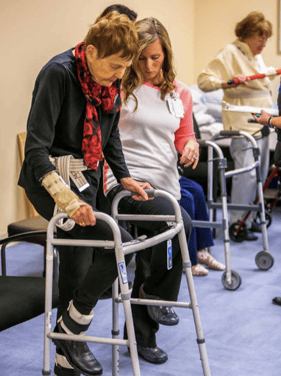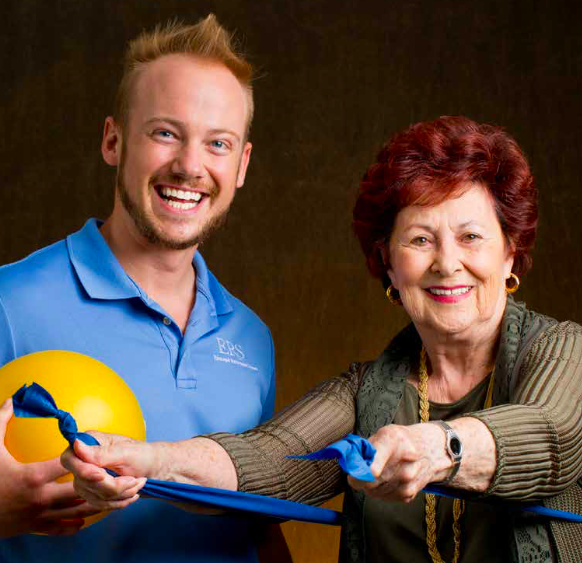It’s been quite a journey. You’ve made it through a major surgery or illness, spent days, weeks, or possibly months recovering in short-term rehab, and are now strong enough to return home.
But how can you be sure that you’ll have a safe, successful, and stress-free transition back to your residence? How can you help to ensure your condition will continue to improve, and that you won’t develop a complication that would require re-admission to the hospital?
Some short-term rehab facilities, including Marjorie P. Lee in Cincinnati, have hospital-to-home transition programs that are designed to ease the process of returning. Our programs will help you continue your healing and can help prevent recurrent infections or injuries.
What happens before Your Marjorie P. Lee’s short-term rehab stay ends
Before your discharge, a Care Transitions Coordinator will come talk with you. He or she will guide you on the right questions to ask your healthcare providers when you’re discharged, and make sure that you understand the post-discharge care plan that your doctor has recommended.
Your coordinator will ensure that you receive the list of medications you will be prescribed, that you understand what each one is for, and that you understand when and how to take them. A five-day supply of your medications will be sent home with you to allow you time to have your prescriptions filled at the pharmacy.
If in-home nursing, and/or in-home physical, occupational, or respiratory therapies have been recommended, your Care Transitions Coordinator will help you to arrange for them. Or, if you already have a provider in mind, you may arrange for those services on your own.
Helping your healing stay on track
Following your discharge, your coordinator will initially meet with you at your residence to ensure that you have all the pieces in place to enable your continued recovery. He or she will verify that:

- Medical or therapeutic equipment you need has been delivered and, where applicable, installed.
- You have the medical supplies you need.
- You have, and are correctly taking as indicated, your medications.
- You and/or your caretakers have the tools and means to manage your recovery.
- Your follow-up doctor’s appointments are scheduled.
- You have reliable transportation to and from your doctor’s appointments.
- Any necessary in-home skilled nursing services and outpatient therapy services have started.
- Referrals for any additional support services you might need — including housekeeping, Deupree Meals On Wheels, grocery and errand transportation, etc. — have been made.
Following that initial home visit, your Care Transitions Coordinator will periodically check in with you by phone. He or she will encourage you in your recovery, step in to assist if different services need to be set up, and help to iron out any scheduling difficulties that may arise.
After 60 days, if you believe you still need ongoing support or need additional support services, your coordinator can provide you with more information. He or she can also refer you to a more permanent case management service, such as Living Well Senior Solutions, if you need it.
As always, he or she will be available to answer you and your loved one's questions during your recovery period.
We want to make sure that you continue living well into the future.
Episcopal Retirement Services, your short-term rehab providers at Marjorie P. Lee Retirement Community, and the members of our Care Transitions team are all dedicated to ensuring your recovery a success. That’s why we make your post-discharge care just as high a priority as we do your inpatient care.
We’re honored that you would trust us with your care. If you have questions about short-term physical rehabilitation services at Marjorie P. Lee, or wish to arrange a tour, click here to contact us.
Let us show you and your loved ones how we can make your recovery as swift, effective, and pleasant a process as possible.













